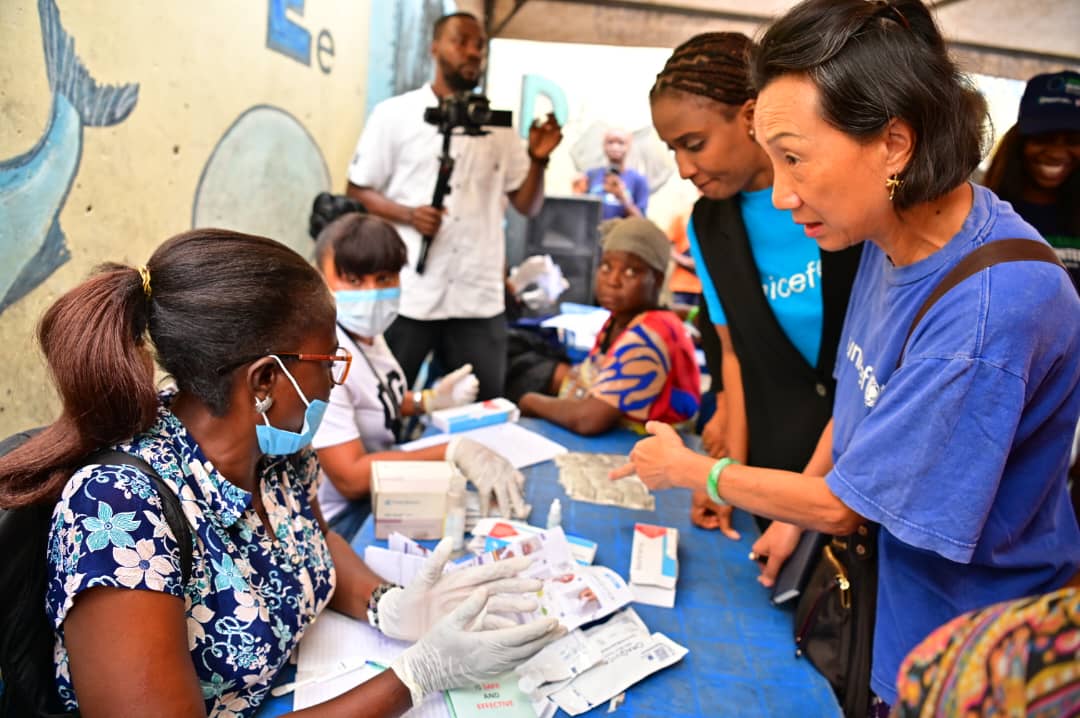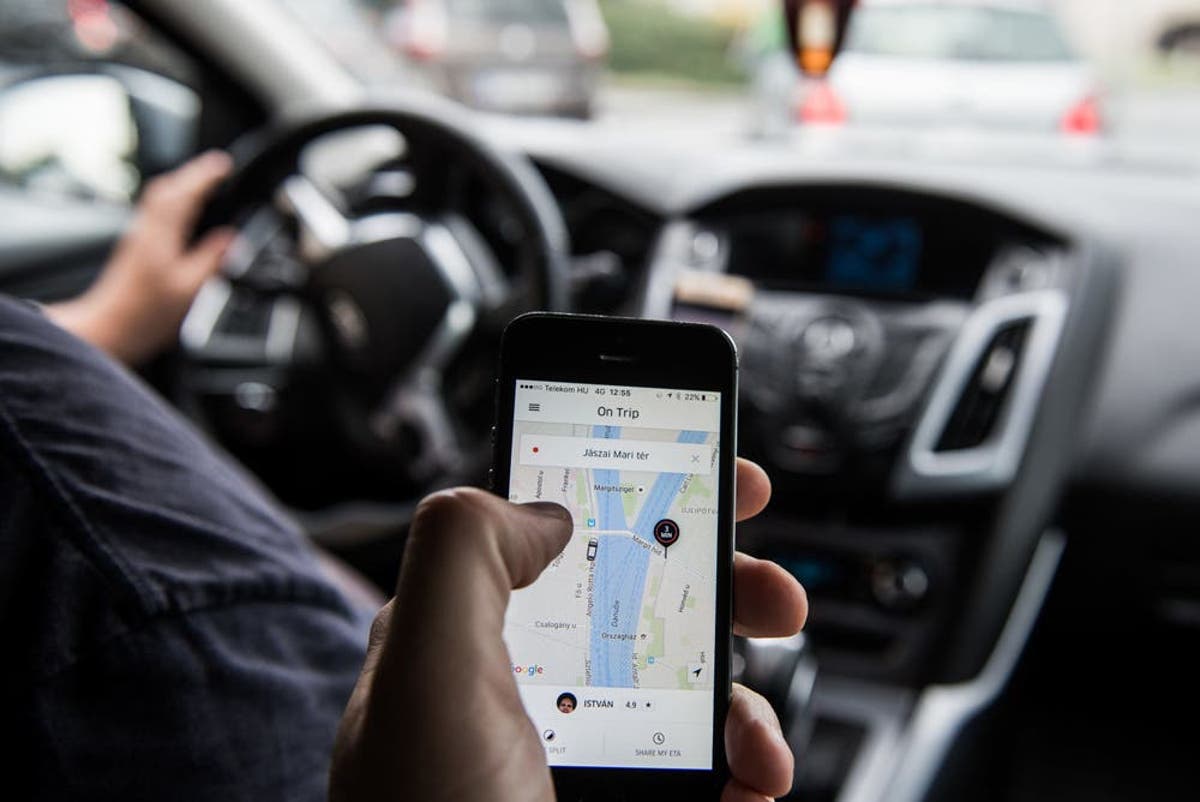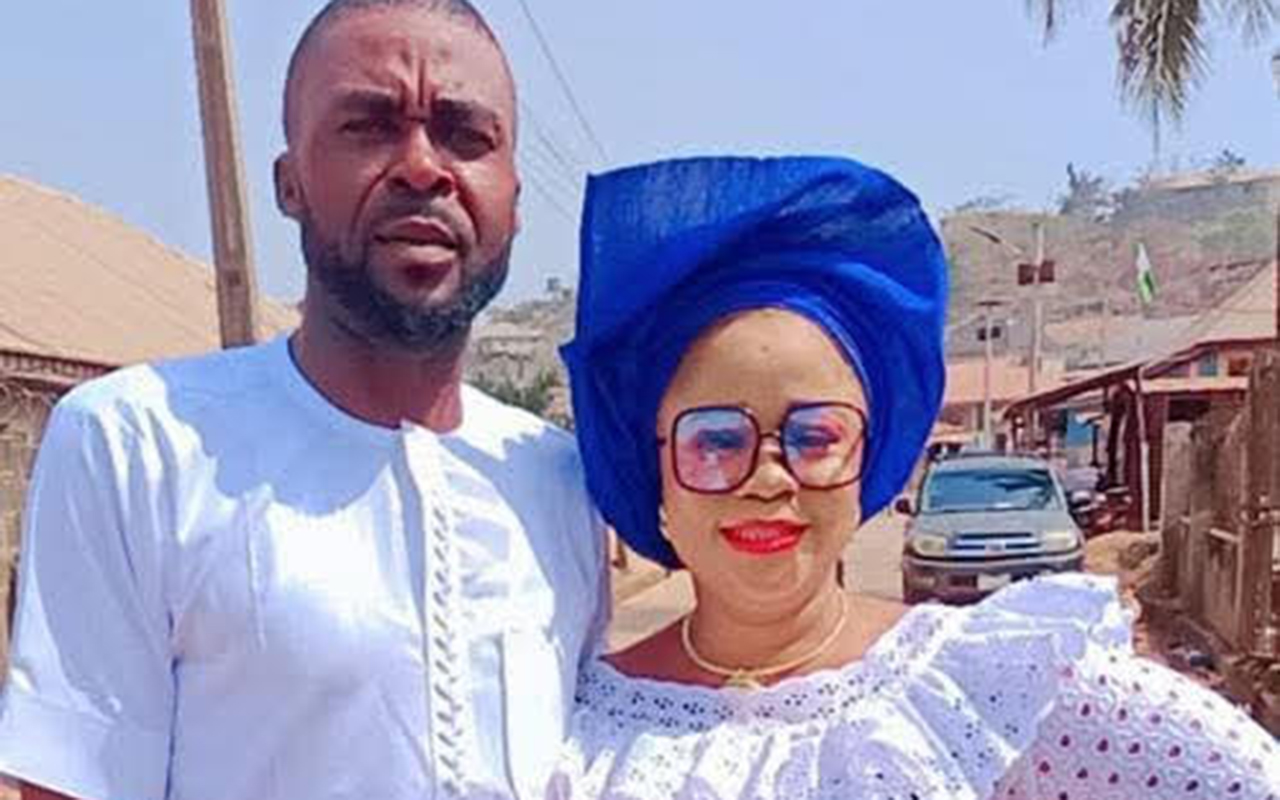
The Lagos State AIDS Control Agency (LSACA) in partnership with the United Nations Children’s Fund (UNICEF) and the National Agency for the Control of Aids (NACA) yesterday put together a Community Outreach in the Ajeromi-Ifelodun Local Government Area, themed ‘Yaah Naija’ to offer children and adolescents the right sensitisation to prepare them for adulthood.
The community had healthcare workers offer HIV status check, COVID-19 vaccination and immunisation exercise for children.
Key stakeholders from UNICEF were in attendance to discuss necessary steps needed to move forward in the area of child and adolescent wellbeing. The living conditions of the local community in Ajeromi-Ifelodun were also paramount, while analysing key measures that would need to be taken to stir an improvement.
Regional HIV Specialist for West and Central Africa, Dr. Mireille Tribie, while speaking on her visit expressed concerns over the health state in the community. “It has always been an important vision for me to visit Nigeria. And of course, due to your population and indicators, everything that happens in Nigeria affects not only the African continent but the world. This is one of the reasons why I am here.
“Children are our future, and as they grow into adolescence, we need to make sure we continue to prepare them health wise and education wise, to become responsible adults because they are becoming the future politicians and governors, making decisions on behalf of the entire population” she said.
Dr. Tribie reaffirmed UNICEF’s commitment to ensuring that Children always have a voice in all contemporary issues.
She believed that the conference offered a chance to directly listen to the thoughts of Young People, which would be highly useful in determining ways to properly guard their all-round health.
“Making sure as UNICEF that are children are always part of the discussions around the table is our job. Being a part of this conference where the Young People are going to be telling us what we are doing right and what we are doing wrong, helps to ensure that our promise of helping them have good wellbeing and be able to responsible, to take care of their lives in the future, and to become good parents is fulfilled. This has always been the role of UNICEF” she added.
Many local governments were present at the Conference. Dr. Tribie was hugely impressed by their involvement, and noted that their support would become highly crucial towards achieving both the UNICEF’s and the Nigerian government’s targets for child health and wellness.
“I am extremely pleased to see local governments here in attendance. We need to always ensure that there is sustainability and without the local governments, there is no sustainability. I am extremely delighted to see them here with us” she said.
A senior official from UNICEF in New York and Associate Director Health, Maternal Newborn Child Adolescent Health Team, Dr. Lu Wei Pearson said that all hands needed to be on deck to realise a significant change in adolescent well-being. “It is not only based on healthcare – education, unemployment, mental health and the physical exercise and housing. There are many challenges and it is important for the government and the Civil Societies to find solutions.
“Also, Young People need to create their own solutions. They really need to make sure they get schooling, especially the girls; they must complete their primary and secondary education, and make sure that they do not expose themselves to unhealthy behaviour. They should have good nutrition and they should have a healthy lifestyle.”
As for Ajeromi-Ifelodun Local Government Area, there was a huge gap that needed to be breached to attain conducive living. She added that while UNICEF definitely had a role to play in ensuring that more communities like Ajeromi-Ifelodun were able to improve all-round living conditions, the primary obligation rested on the shoulders of the government at both Federal and Local level.
“The government of Nigeria has ambitious plans, to provide primary healthcare and essential health services for every population. That means that UNICEF here is to support the government’s plans.
Even in this urban slum, we have a lot of challenges – crowded living, poor water sanitation. It is primarily for the government and the local government to take responsibility. And wherever there is a gap or additional areas where UNICEF can support the government and the Civil Societies, we should do so. We are really here for Children, for Women and for their best interests”






